Ubuntu is known to be a formidable platform other than more flagship ones like Windows and MacOS. It is free, open-source, more secure, customizable, has great privacy, and is known for its excellent performance and resource efficiency. However, there lie two other offshoots of Ubuntu, and these are the Lubuntu and Xubuntu platforms.
Lubuntu and Xubuntu are two popular variants of the Ubuntu operating system, each with a lightweight desktop environment. They are both highly customizable, user-friendly, stable, reliable, and of course, lightweight as they are based on Ubuntu. However, despite both sharing many similarities, each has its own differences that can make or break one’s decision to choose one over the other.
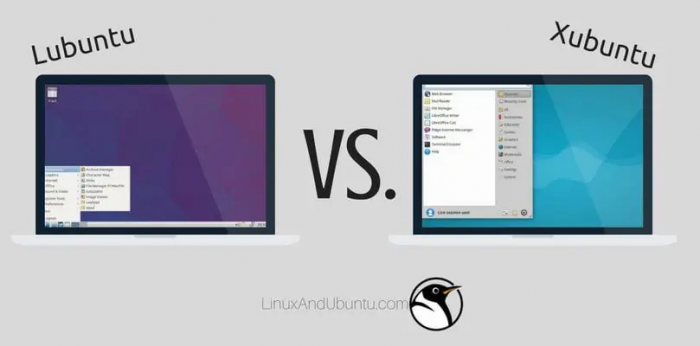
Courtesy: Linuxandubuntu
Desktop Environment
One of the most significant differences between Lubuntu and Xubuntu is the desktop environment that they use. Xubuntu uses the Xfce desktop environment, whereas Lubuntu utilizes the LXDE/LXQT desktop environment. Both desktop environments are designed to be lightweight, fast, and customizable. Nonetheless, they have some notable differences.
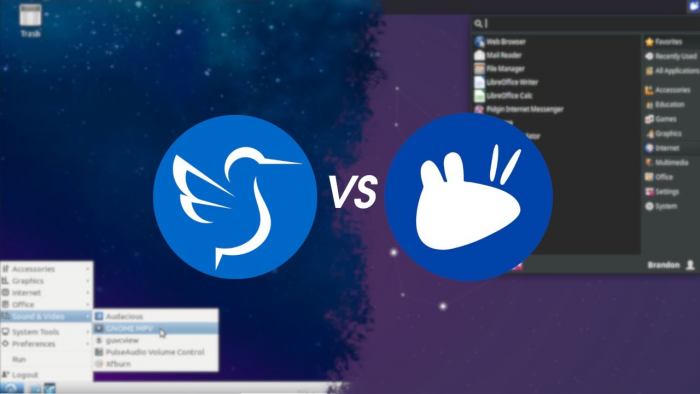
Courtesy: TechHut (YouTube)
Firstly, LXQt is a modern desktop environment that is built using the Qt toolkit. This environment is designated to be fast and energy-sufficient, making it a good choice for low-spec hardware. LXQt includes a number of features, such as a powerful file manager, a customizable panel, and a range of desktop widgets. It also supports theme customization, so users can freely change the look and feel of their desktops.
Meanwhile, Xfce is a more traditional desktop environment built on the GTK toolkit. While it is also designed to be fast and lightweight, it also has a more familiar desktop layout than LXQt. Xfce carries a range of features, such as a customizable panel, a powerful file manager, and a range of desktop plugins. Like LXQt, it also supports theme customization.
Resource utilization
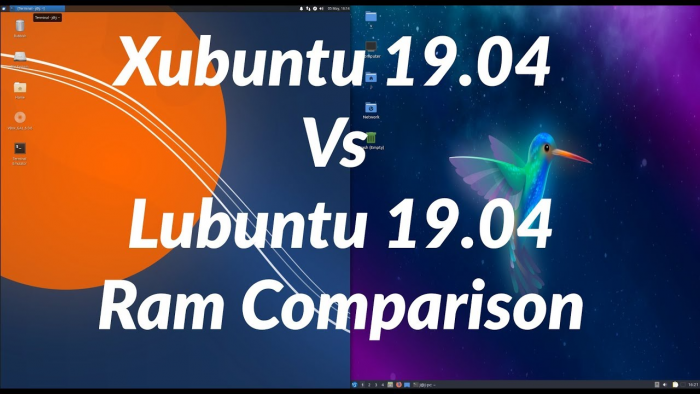
Courtesy: Linux Lad (YouTube)
Another significant difference between Lubuntu and Xubuntu is their resource usage. Lubuntu generally is considered to be the lighter of the two distributions, especially since it can run on lesser RAM and CPU than Xubuntu. How Lubuntu gained this edge is attributed to LXQt’s desktop environment, which is more lightweight than Xfce.
Indeed, while both distributions are designed to run on older or low-spec hardware, Lubuntu is often recommended for much older hardware with limited resources. Undoubtedly, Xubuntu is still lightweight compared to other desktop environments, but may not be as suitable for very low-spec hardware the way Lubuntu is.
Pre-installed Applications
Lubuntu and Xubuntu come with a range of pre-installed applications, but both platforms have slight differences with these applications. While Xubuntu comes with the Thunar file manager and the Mousepad text editor, Lubuntu has the PCManFM file manager and the FeatherPad text editor. Lubuntu’s apps are lightweight and are designed to be fast and efficient.
The two OSes, however, have similarities, too. Being based on Ubuntu, they come with the typical range of applications and utilities like the Firefox web browser, LibreOffice suite, terminal emulator, image viewer, and PDF viewer.
Customization
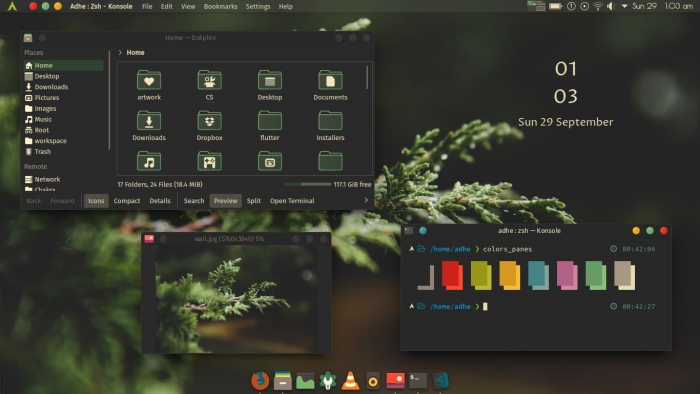
Courtesy: UbuntuPit
Customization for both Lubuntu and Xubuntu is top-notch, as they are designed and known for this feature. Both platforms support theming and allow users to personalize their desktop environment to suit their needs. Thus, users can freely change the look and feel of their desktops, including icons, wallpapers, and window decorations.
However, Xfce has a more established theming community, boasting a collection of high-quality themes available online. LXQt is a newer desktop environment, so there are fewer themes available. Regardless of this, as people adopt more to LXQt, themes are starting to emerge quicker than before.
Stability
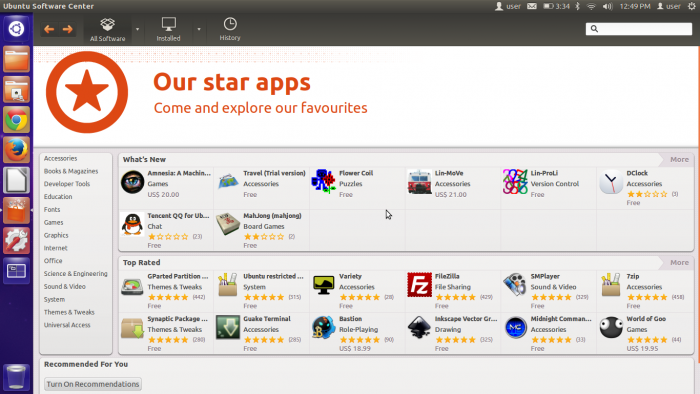
Courtesy: PM Student Helpdesk
Both Xubuntu and Lubuntu are known for their supreme stability and reliability. They are both based on Ubuntu, which is already a well-established Linux distribution. Regardless, there are some differences in how each of the platforms handles their updates.
Xubuntu utilizes the Ubuntu Software Center to manage updates, a trusty and reliable package manager. Meanwhile, Lubuntu uses the lightweight Muon package manager, programmed to be fast and efficient. While Muon is indeed a capable package manager, users report encountering issues with the program.
User Interface
Xubuntu and Lubuntu have distinct user interfaces, albeit both are designed to be user-friendly and easy to navigate. Xubuntu, which uses Xfce, has a more traditional desktop layout, with a panel at the bottom of the screen and a menu in the left corner. This is similar to the older versions of Windows and Linux, where it is optimized for users who prefer a more traditional desktop interface. Furthermore, it allows users to easily access their applications, files, and settings with minimal learning curve.
Lubuntu, on the other hand, uses the LXQt desktop environment, which has a more modern and streamlined interface. LXQt provides a panel at the top of the screen and a menu in the bottom-left corner, which is identical to the interfaces of other modern operating systems. This layout is built for users who prefer a more modern desktop interface, as it provides a more intuitive navigation experience.
Hardware Support
Undoubtedly, both Lubuntu and Xubuntu offer good hardware support, but there are crucial differences in how they handle drivers and firmware. Xubuntu utilizes the Ubuntu Hardware Enablement (HWE) stack, which provides updated drivers and firmware for newer hardware. Furthermore, this ensures that Xubuntu supports a wide range of hardware, including newer devices.
Lubuntu, meanwhile, uses the standard Ubuntu kernel and drivers, which may not enable support for the latest hardware. Nonetheless, true to its design philosophy, Lubuntu is still designed to be lightweight and efficient, so it may run better on older hardware than Xubuntu.
Community Support
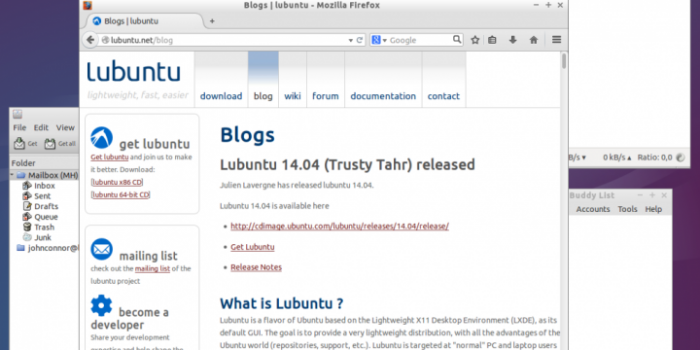
Courtesy: Lubuntu
Both Lubuntu and Xubuntu have interactive, supportive, and hands-on communities. They both have forums, wikis, and other resources available online for all sorts of inquiries. Nonetheless, due to it being present longer than LXQt, Xfce has a larger user base and a more established community, with a wide range of resources available for users.
Comparatively, LXQt is a newer desktop environment, so its community is growing, especially its resources online. However, despite this, there is a sizable amount of resources available, including a wiki and forum. What unites both communities of Xfce and LXQt is how their communities are helpful. Users can find answers to their questions and get help with any issues they may encounter.
Support for touchscreens

Courtesy: UsabilityGeek
Considering the ever-increasing popularity of touchscreen devices, many users may be interested in whether Xubuntu and Lubuntu are optimized for touch input. Indeed, they offer touchscreen support and have each made significant strides in improving this feature, but with some differences between the two.
Xubuntu’s Xfce desktop environment has limited touchscreen support, and users may have difficulty navigating the interface using touch gestures. However, Xubuntu does provide some touchscreen-friendly applications like the Onboard virtual keyboard and Celluloid media player.
Meanwhile, Lubuntu has a more advanced touchscreen with its LXQt desktop environment. The interface is engineered to be more touch-friendly, with larger icons and more space to accommodate touch gestures. Lubuntu also includes an on-screen keyboard, which makes it easier to type on touchscreen devices due to its interface.
Regardless of their differences in touchscreen support, it is worth noting that the level of touchscreen support is dependent on the specific hardware being used. Some touchscreen devices may work better with Xubuntu, meanwhile, others may work better with Lubuntu.
Gaming performance
Although both Xubuntu and Lubuntu are not designed to be excellent platforms for gaming, there are still users who might be interested in how well they perform in this aspect. Both desktop environments are relatively lightweight, which can be beneficial for gaming performance on lower-end hardware. However, Xubuntu tends to have slightly better gaming performance than Lubuntu.
Xubuntu’s Xfce desktop environment plays a huge role in Xubuntu’s gaming performance, primarily due to its lightweight and feature-rich nature. Xfce is designed to be fast and responsive and uses fewer system resources than other desktop environments. Thus, more system resources can be dedicated to running games for the sake of better performance.
Lubuntu, meanwhile, uses the LXQt desktop environment, which is also lightweight but less feature-rich than Xfce. While LXQt may indeed be fast and responsible, it may not be as optimized for gaming like how Xfce is. Additionally, Lubuntu’s default applications may not be optimized for gaming as Xubuntu’s, which can also negatively impact gaming performance.
Nonetheless, for users seeking to find the best gaming experience and performance, it is better to opt for other platforms besides Lubuntu and Xubuntu, as they are not designed for gaming.
In the end, both Lubuntu and Xubuntu are excellent Linux distributions that offer lightweight and efficient desktop environments. They are both based on Ubuntu, which allows for a stable and reliable foundation for the operating system. Although they have some differences in their desktop environments, pre-installed applications, and resource usage, they share many similarities when it comes to their stability, customization, and user-friendliness.
Ultimately, the choice between Lubuntu and Xubuntu boils down to personal preference and the hardware you are using. If you have an older or low-spec computer, you may be better off with Lubuntu due to its lower resource usage. Meanwhile, if you prefer a more traditional desktop environment, have a stronger computer, and want more advanced features, Xubuntu may be the better choice.